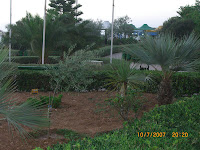 Fid-dinja kontemporanja tal-lum, in-nies qed jibbenifikaw mill-invenzjonijiet xjentifiċi, li bidlu l-ħajja tagħna kompletament. Dawn l-invenzjonijiet xjentifiċi huma ta’ benefiċċju kbir għalina lkoll. U issa ma naħsbux li nistgħu ngħixu mingħajrhom. U minħabba dawn l-invenzjonijiet naraw bidla kbira fil-klima u t-tniġġis qed jiżdied kuljum.
Fid-dinja kontemporanja tal-lum, in-nies qed jibbenifikaw mill-invenzjonijiet xjentifiċi, li bidlu l-ħajja tagħna kompletament. Dawn l-invenzjonijiet xjentifiċi huma ta’ benefiċċju kbir għalina lkoll. U issa ma naħsbux li nistgħu ngħixu mingħajrhom. U minħabba dawn l-invenzjonijiet naraw bidla kbira fil-klima u t-tniġġis qed jiżdied kuljum. Kif nafu, dawn l-invenzjonijiet għandhom effetti negattivi għal saħħitna wkoll, kif ukoll mard ta’ tip differenti qed jaffetwa n-nies. Ħafna nies qed ibatu minn allerġiji, kanċers, problemi tan-nifs, problemi ta’ ġilda, eċċ. In-numru tan-nies li jużaw inhalers qed jiżdied.
Naraw ħafa laqgħat dwar l-ambjent fil-pajjiż kif ukoll madwar id-dinja, sabiex naslu li nsalvaw il-problemi dwar l-ambjent. Ħafna diskuzzjonijiet qed jiġu organizzati biex insibu s-soluzzjonijiet ta’ kif nistgħu nagħmlu l-ambjent aħjar.
Waħda mis-soluzzjonijiet hi li nibdew inħawlu ħafna siġar kemm nistgħu f’kull pajjiż tad-dinja. Il-mistoqsija hi, għaliex is-siġra hija ta’ importanza kbira? X’inhuma l-benefiċċji tas-siġra?
Meta naqraw dwar is-siġra insibu li siġra hi vera importanti għall-ambjent kif ukoll għal saħħitna. Is-siġra tagħtina frott, kenn, injam, arja friska kif ukoll l-ossiġnu li huwa importanti ħafna għall-ħajja tagħna fuq l-art.
Hawn irrid nikteb l-istorja li qrajt ħafna snin ilu, iżda l-messaġġ tagħha huwa importanti l-istess illum kif kien qabel, anki aktar minn qatt qabel.
Qrajt li darba waħda r-re ta’ xi pajjiż kien għaddej minn qalb għelieqi u ra raġel li kien xiħ ħafna u li kien qed ħawwel siġra. Ir-re kien sorpriż u mar ħdejh u qallu: ‘‘Għalxiex inti qed tħawwel din is-siġra?’’
Ir-raġel qal: ‘‘Għall-frott, għall-kenn, għall-ossiġnu u għall-arja safja.’’
Ir-re qal: ‘‘Int taf li inti raġel xiħ ħafna u ma tafx kemm se tgħix aktar, hu possibbli li tmut qabel din is-siġra tikber, issir siġra kbira u tibda tagħti l-frott u l-kenn.’’
Ir-raġel qal: ‘‘Maestà! Din is-siġra mhux għalija. Naf li aktarx immut fil-futur qrib iżda rrid li nħalli xi ħaġa tajba lill-ġenerazzjonijiet ta’ warajja u nagħti rigal ta’ valur kbir lin-nies li ġejjin warajja.’’
U kompla jgħid li: ‘‘Din se tkun karità minni għas-snin li ġejjin, u se nirċievi l-barkiet ta’ Alla sa dak iż-żmien li din is-siġra se tibqa’ tagħti benefiċċji lin-nies.’’
Din l-istorja għandha messaġġ sabiħ ħafna; li wara l-mewt in-nies jispiċċaw imma l-affarijiet u l-għemil tajbin tagħhom jibqgħu għal dejjem. Is-siġar li jagħtu l-frott, il-kenn u l-arja safja huma wkoll wieħed mill-għemejjel tajbin li se jibqa’ għal dejjem. Għalhekk, jekk aħna rridu li n-nies jitkellmu tajjeb dwarna, wara l-mewt tagħna, allura hija importanti li aħna nħawlu ħafna siġar, kemm nistgħu.
Jekk aħna rridu li ngħixu ħajja tajba, jekk rridu li uliedna jgħixu ħajja kuntenta, jekk irridu li nħallu xi ħaġa tajba warajna għall-ġenerazzjonijiet li ġejjini, hu wisq importanti li nħawlu ħafna siġar kemm nistgħu. U nagħtu importanza kbira lil dan il-pjan.
Wasal il-ħin, li kull wieħed minna jipprova iħawwel is-siġar f’pajjiżna, li hi gżira daqstant ċkejkna iżda ħafna għażiż għalina, sabiex inħallu warajna pajjiż sabiħ, ambjent aħjar u uliedna ferħanin. Ejjew niddedikaw ruħna sabiex insalvaw l-umanità mill-problemi tal-ambjent u nagħtu dan ir-rigal prezzjuż lill-ġenerazzjonijiet li ġejjin.
B’din il-viżjoni dwar l-importanza tas-siġar, il-Komunità Aħmadija Musulmana f’Malta ħawlet siġar ‘‘fil-Park Nazzjonali tas-Salini’’, fil-preżenza tal-Ministru tar-Riżorsi u Affarijiet Rurali l-Onor. George Pullicino.
Għalhekk, din id-darba l-Ordni Aħmadija qed tikkontribwixxi fil-qasam tal-ambjent ukoll. Il-Komunità ħawlet tletin siġra fosthom ukoll siġar taż-żebbuġ. Kif nafu li l-friegħi taż-żebbuġ huma simbolu tal-paċi u l-imħabba. Għalhekk, il-Komunità Aħmadija trid tagħti l-messaġġ tal-paċi u l-imħabba lill-poplu Malti, u trid twassal il-messaġġ tal-imħabba għal kulħadd, mibegħda għal ħadd, lejn aħwa tagħna Maltin.
Hawn ukoll irrid nikteb li hemm ukoll xi nies li jivvandilizzaw is-siġar li huma ta’ ġid kbir għall-umanità. Qrajt il-poeżja ta’ Victor Fenech dwar dan il-suġġett, u jiena nixtieq li niktibha għall-qarejja tagħna. Din hi l-poeżja li jisimha ‘‘Iż-Żabra’’:
Is-siġra tal-misraħ sa lbieraħ kienet tfakkarni fir-riti antiki
tal-mara fertili qed tongħos ħedlija fuq ħaġra godlija.
Tfakkarni f’disinji ta’ dell u ta’ dija, ta’ lwien fantasija.
Tbenninni ġo nieqa ta’ friegħi u friegħ, twennisni ġo wejla
ta’ wens u mistrieħ...
Imbagħad ġewwa l-misraħ ilbieraħ, bi srieraq u slielem
armati, ġew erba’ pirati. U dritt marru ħdejha u lbiesha
ċarrtulha/qaċċtulha idejha, u xagħarha minn rasha, sa waslu
sa ngħasha. U s-siġra la tniffset, protesta la lissnet la karba
t’uġigħ.
U telqu l-pirati bis-srieraq u s-slielem. U s-siġra sserrata
ħallewha waħedha titniehed fl-ispazju ta’ misraħ li krieh.
U ġew filgħaxija l-għasafar u stagħġbu b’dil-ħerba qatigħ, u
wħud minnhom bkew. U telqu ħosbiena fuq ġwienaħ iċ-
ċomb f’kenn ieħor ifittxu dil-ħerba jinsew. U ruħi, tithenna
mdorrija b’għanjiethom mis-siġra kennija, ħassejtha
sseħibhom f’titjir(a) gunija.
U baqa’ ġo moħħi l-lejl kollu, bla friegħi bla weraq bla tjur
u bla kenn, zokk oħxon ġo misraħ iqattar id-demm.
X’nista’ ngħid aktar minn hekk!!









